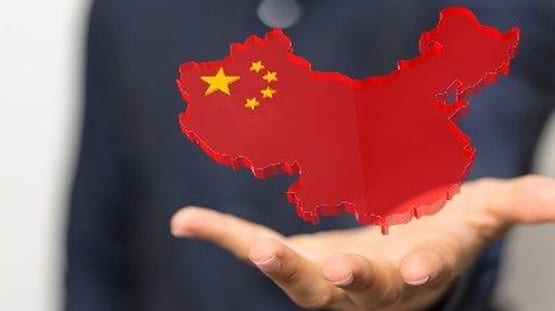
By any stretch of the imagination, the March 10 announcement of China’s brokering of a Saudi Arabia-Iran agreement to resume diplomatic relations and exchange security assurances is a big deal.
As one observer put it, “China’s prestigious accomplishment vaults it into a new league diplomatically and outshines anything the U.S. has been able to achieve in the region since Biden came to office.”
Washington reacted as though not much had happened. But that’s a false front. Fact is, the U.S. and Israel have suddenly been put on the sidelines, watching as two autocracies are being brought together by a third.
The strange thing about this announcement is that it comes just a day after reports that the Saudis were hoping for another big deal, with the U.S., one that would establish diplomatic relations with Israel in return for security guarantees, increased access to US weapons, and Israeli help with Saudi Arabia’s nuclear energy ambitions.
Israel might welcome such a deal, but for the U.S. it may ask too much.
First, the reported deal requires trust that the Saudis won’t actually seek a nuclear weapon once having gained access to nuclear technology.
Second, it calls for the US to promise protection for an authoritarian regime that has a horrendous record on human rights, including the murder of the dissident journalist Jamal Khashoggi.
And, as Biden’s fist-bumping visit to Saudi Arabia last July showed, Crown Prince Mohammed bin Salman (MBS) is unreliable, unwilling even to increase oil output.
That visit can hardly match up with Xi Jinping’s diplomacy in December, when Xi and MBS signed numerous economic development and trade agreements and declared a “comprehensive strategic partnership”—an “epoch-making milestone in the history of China-Arab relations,” according to China’s foreign ministry spokesperson.
Implications for Middle East international relations
In the cold light of day, let’s examine what this diplomatic event might and might not accomplish.
Clearly, it’s a win for all three parties.
For China, the deal shows the virtues of opportunistic over aggressive “wolf warrior” diplomacy. Having made its first foray into a major regional dispute, China has gained increased prestige and commitment as a great power. Now, says Xi Jinping, China should “actively participate in the reform and construction of the global governance system” and promote “global security initiatives.” That’s China’s wish list, but secure access to Saudi and Iranian oil supplies may be of more immediate interest to Beijing.
For Saudi Arabia, restoring relations with Iran while still being wedded to alliance with the US is a victory for Crown Prince MBS’s newly flexible foreign policy. Improved relations with Iran may not only may moderate longstanding competition in Lebanon and Syria; it may finally bring the costly civil war in Yemen to a close, since under the agreement, Tehran and Riyadh will stop supporting their proxy forces.
Iran also cements close economic ties with China, possibly opens up economic opportunities with alienated neighboring countries, and gives the Ayatollah Khomeini regime a boost in prestige as it tries to end antigovernment protests.
The Saudi-Iranian deal also diminishes U.S. influence in the Middle East. Washington could not have accomplished what China has because of its uncertain relationship with the Saudis and its enmity with Iran. As two observers comment, China stepped into “the diplomatic vacuum left by a [US] foreign policy that led with the military and made diplomacy all too often an afterthought.”
As for Israel, it has become more isolated in the Middle East and more reliant than ever on the US. Prime Minister Benjamin Netanyahu might now feel obliged to get his political house in order; so many military reservists out among the demonstrators protesting his “judicial reform” poses national security issues. A weakened Netanyahu government needs improved relations with the Biden administration as well as normalization of relations with Saudi Arabia. He would do well to stop pressing the US to take military action against Iran’s nuclear facilities, much less carry out an attack of its own.
Questions and options
Now, a reality check. Will Saudi Arabia and Iran be able to put aside their deep differences, which extend from Sunni-Shiite sectarian rivalry to aspirations for regional leadership? Their “reconciliation” will surely be a work in progress, to be tested in Yemen and in relations with both the US and Israel.
Next is U.S.-Iran relations: Will the Biden administration reverse course and try to revive the nuclear deal? Or will the administration continue to rely on a losing strategy—sanctions, perhaps in hope of regime change—that will only strengthen Iran’s ties to Russia and China?
Then there’s the US and Israel: Will they meet China’s diplomatic challenge by seeking Israel-Saudi Arabia normalization of relations and democratic consolidation within Israel?
Phrasing the questions this way suggests potential pathways for a new U.S. diplomatic approach in the Middle East. There’s nothing novel about such an approach; its elements have been around for decades.
They include principled support of Israel—commitment to its security, but no automatic arms shipments, no grudging acceptance of attacks on Palestinians or seizures of their land, and aid to all parties that promote human rights and democratic capacity building; reinstatement of the nuclear deal with Iran, and willingness to reduce sanctions on Iran if the regime reins in its interventions in Iraq and other neighboring countries; and military support of Saudi Arabia that is tied to diplomatic relations with Israel, termination of its intervention in Yemen, and international monitoring of any nuclear energy project.
In short, U.S. policy should be based on common security in the Middle East, social justice, and peace.
Mel Gurtov, syndicated by PeaceVoice, is Professor Emeritus of Political Science at Portland State University and blogs at In the Human Interest.










